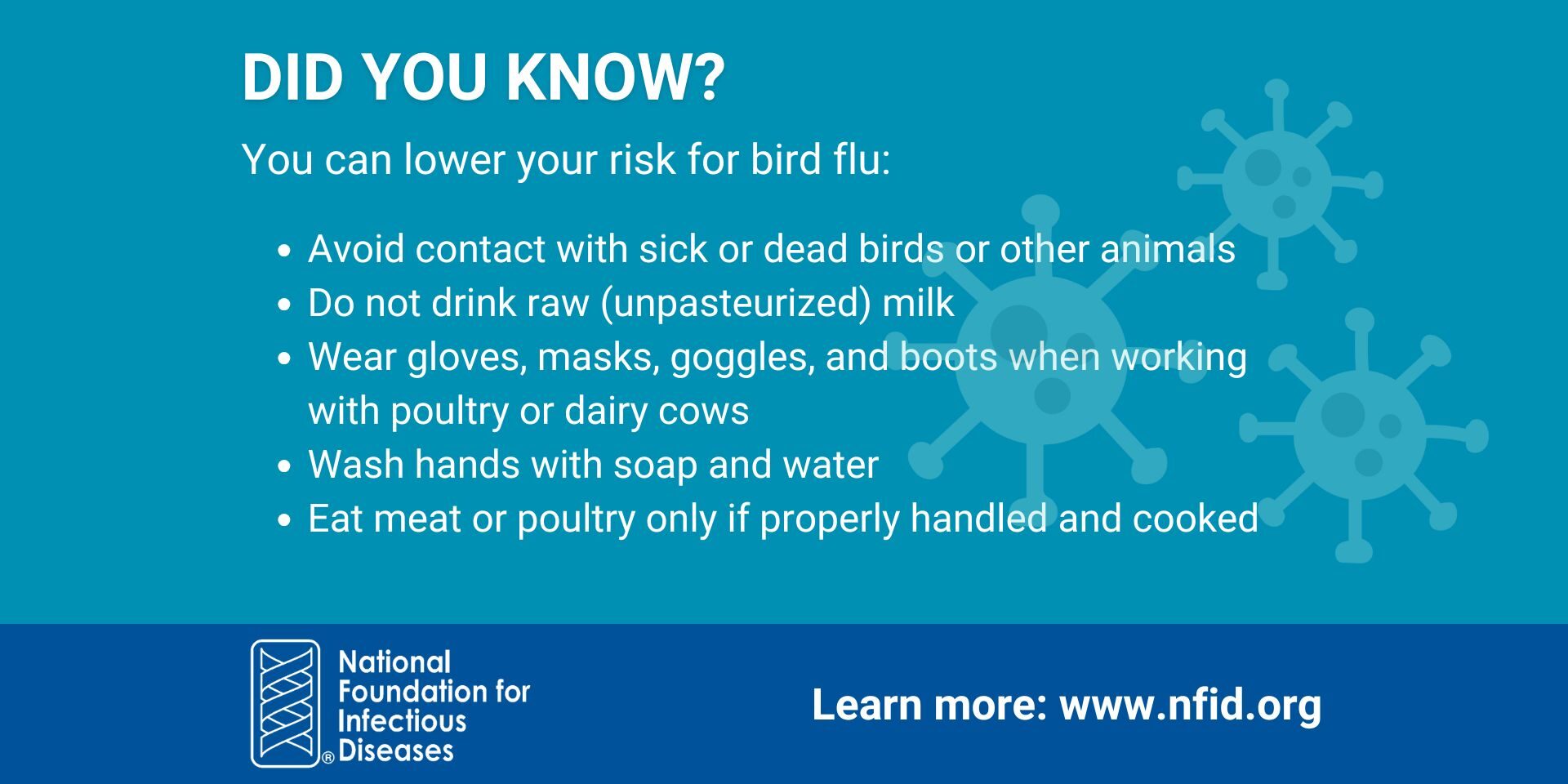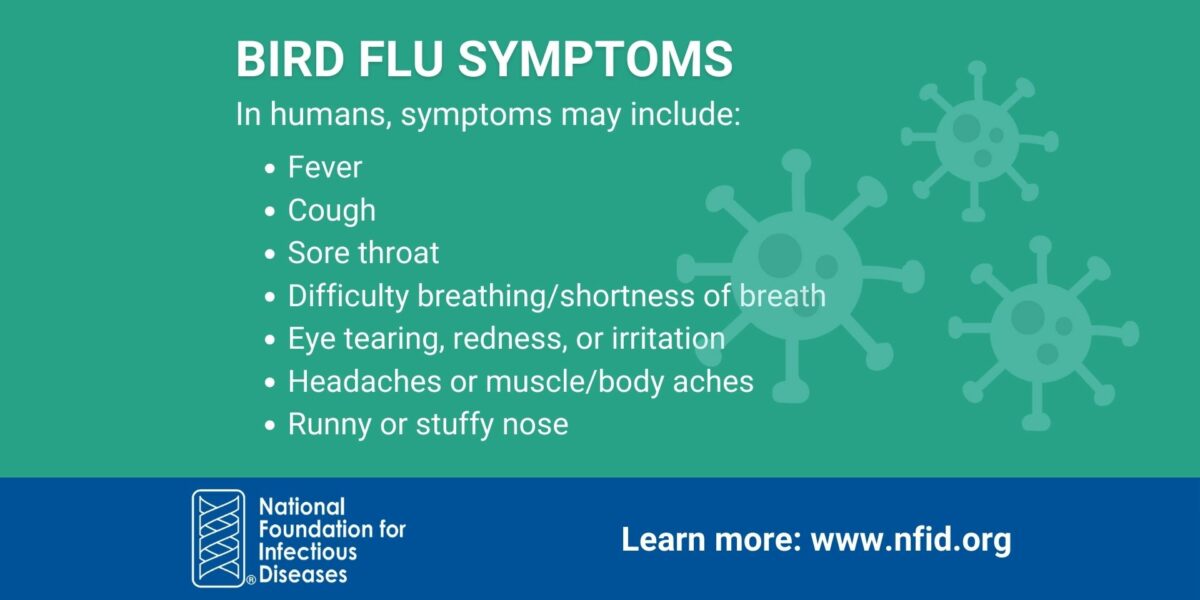
Bethesda, MD (December 19, 2024)—The current bird flu outbreak underscores the importance of maintaining strong public health systems. “Stay alert, but do not panic,” says Robert H. Hopkins, Jr., MD, medical director of the National Foundation for Infectious Diseases (NFID). “The risk to the public is currently low and there are steps everyone can take to help protect their own health and prevent the spread of disease.”
NFID recommends that individuals take the following steps:
- Avoid contact with sick or dead birds or other animals
- Do not drink raw (unpasteurized) milk
- Eat meat or poultry only if it has been properly handled and cooked
- If you are in contact with potentially sick birds or other animals, use personal protective equipment including masks and gloves, and wash your hands with soap and water afterward
- If you had contact with potentially sick poultry or other animals, watch for symptoms and contact a trusted healthcare professional as soon as possible for guidance regarding testing and/or treatment
Getting an annual flu vaccine will not prevent infection with bird flu viruses, but it can reduce the risk of coinfection with seasonal flu and bird flu and lower the risk of flu-related complications including hospitalization or death.
“Existing tools, such as antivirals and personal protective equipment, are sufficient to manage bird flu right now, but we need to maintain testing and surveillance efforts as part of a robust public health infrastructure,” Hopkins says.
Recent cases reported in the US involve exposure to sick birds or dairy cows. Public health surveillance helps identify signs of human-to-human spread or indications that the virus is causing disease in people.
“Flu viruses are notoriously unpredictable. We do not know whether H5N1—or another pathogen—will spark a pandemic, but we do know that we must be prepared. A strong public health infrastructure helps protect us all,” advises Hopkins.
About NFID
Founded in 1973, the National Foundation for Infectious Diseases (NFID) is a non-profit 501(c)(3) organization dedicated to educating and engaging the public, communities, and healthcare professionals about infectious diseases across the lifespan. NFID has a 4-star rating from Charity Navigator and has earned a Platinum transparency seal from Candid/GuideStar. For more information, visit www.nfid.org/flu.
Recent Press Releases

Infectious Diseases Experts Available to Discuss Avian Influenza (Bird Flu)
The National Foundation for Infectious Diseases has spokespersons and resources to help increase awareness about bird flu, also known as avian influenza or A(H5N1)
